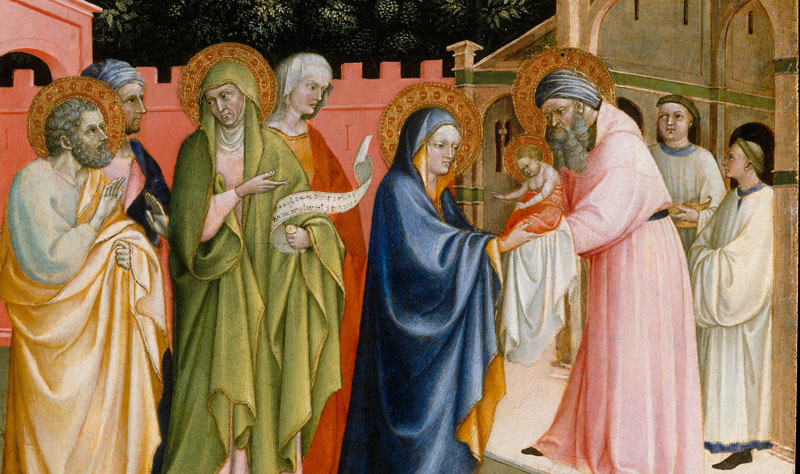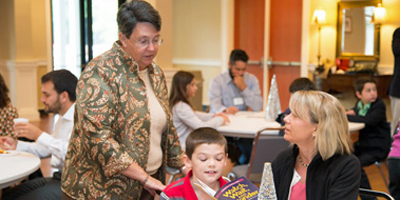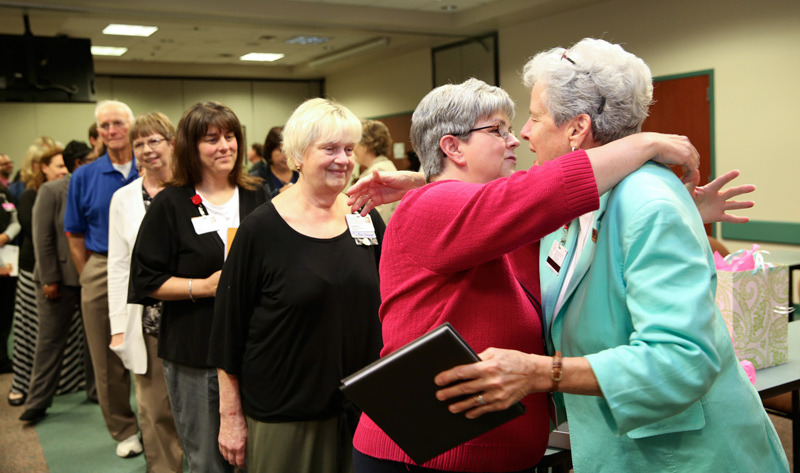
Every Feb. 2 since 1997, the Church has marked World Day of Consecrated Life. This year’s observances were held the weekend of Feb. 3-4.
Two questions arise when this day is mentioned. First, what and who might be celebrated on Consecrated Life Day? Second, why Feb. 2?
In our diocese, we have quite a collection of people who have made official, vowed lifetime consecrations. Priests in religious orders and apostolic communities — Franciscans, Redemptorists, Adornos, and Trappists — are consecrated religious. So too are brothers in these communities, as well as the Christian Brothers in North Charleston. And there are well over 20 communities of women here: nuns such as the Poor Clares, and sisters in the active apostolate including the Sisters of Charity of Our Lady of Mercy (founded here in Charleston), Dominicans, Franciscans, Daughters of St. Paul, Sisters of Sts. Cyril and Methodius, Sisters of St. Mary of Namur and Notre Dame de Namur, Daughters of Charity, and Hermanas de Jesus Buen Pastor. We also have several consecrated hermits here in South Carolina.
What we consecrated religious do varies widely, but it all boils down to prayer and work for the sake of God’s kingdom in a formal, structured way. Religious orders have often been thought of as a labor force buttressing Catholic schools, health care systems, and social service institutions. That is what we have done and often still do. But Church law reminds us that our primary apostolate is the witness of our consecrated lives.
What that means is that we are intended to be living proof that our true wealth, true love, and true destiny are found elsewhere. We are meant to be, as the Gospels say, in this world (engaged with it) but not of it. Our vows of poverty, chastity, and obedience mean that we pledge lifelong to share goods communally (without personal bank accounts, cars, and properties); reside in a brotherly or sisterly group rather than a household with bonds of matrimony and an active sex life; and go to the locations and ministries to which we are called, with the blessing and direction of religious superiors and the bishops of our dioceses.
In a practical sense, this means that most of us will never receive more than $600 a month from Social Security, but will be reliant on donations and trust funds as we age. We won’t be having babies and spoiling grandbabies but instead welcoming novices and (possibly) transfers from other communities. Being missioned means that some of us have served in multiple dioceses, while others have stayed at the same ministry in the same location for decades. This all sounds very solemn — and is — but I can attest that many of our communities also laugh a lot.
Perhaps that is a good lead-in answer to the second question. Feb. 2 marks the Presentation of the Lord in the Temple and Candlemas Day. As consecrated religious, we do our best to bring light, be light, and lead to the Light of Christ. We point to what’s bigger, better, and still beyond.
Sister Pamela Smith, SSCM, is the Secretary for Education and Faith Formation at the Diocese of Charleston. Email her at psmith@catholic-doc.org.




